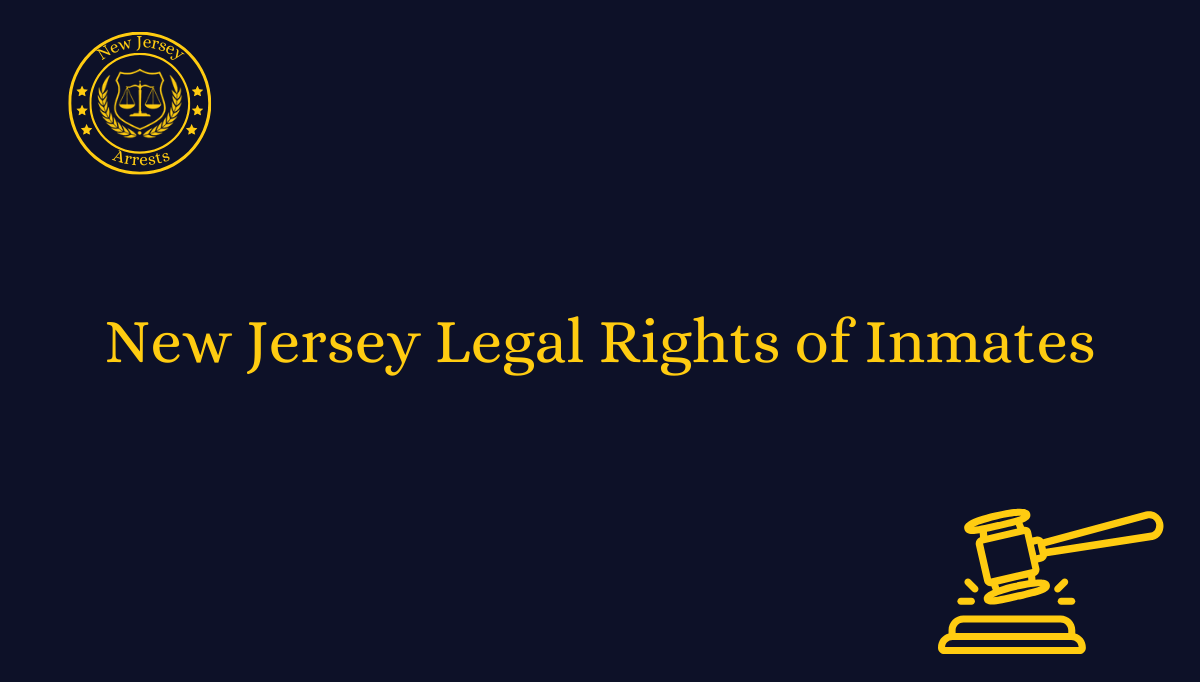New Jersey Legal Rights of Inmates
In the American criminal justice system, the rights of inmates are a crucial aspect of ensuring fair treatment and upholding human dignity. Understanding these rights is essential not only for inmates themselves but also for policymakers, advocates, and the public at large. In New Jersey, like in other states, inmates are entitled to certain legal protections and accommodations throughout their period of incarceration.
Constitutional Rights of Inmates
Inmates in New Jersey, as in all other states, retain certain constitutional rights guaranteed by the U.S. Constitution. Among these rights is the right to due process, ensuring fair treatment in disciplinary proceedings and legal matters. Additionally, inmates are protected from cruel and unusual punishment under the Eighth Amendment, which safeguards them from excessive force and degrading treatment.
Access to Legal Representation
One of the fundamental rights of inmates is access to legal representation. In New Jersey, inmates have the right to legal counsel, either through private attorneys or through legal aid services provided by organizations specializing in inmate advocacy. These services are crucial for inmates navigating the complexities of the legal system, including appeals, parole hearings, and civil rights litigation.
Healthcare Rights
Inmates are entitled to receive adequate healthcare while incarcerated. In New Jersey, this includes access to medical care for physical ailments and mental health treatment for psychiatric conditions. Ensuring proper healthcare for inmates is not only a matter of basic human rights but also essential for maintaining public health and safety within correctional facilities.
Conditions of Confinement
The conditions in which inmates are housed can significantly impact their well-being and rehabilitation. In New Jersey, efforts are made to ensure that prison living conditions meet basic standards of hygiene, safety, and comfort. However, challenges such as overcrowding persist, posing risks to both inmates and staff members.
Disciplinary Procedures
Inmates in New Jersey are subject to disciplinary procedures for violations of prison rules and regulations. These procedures must adhere to due process standards, including the right to a fair hearing and the opportunity to present evidence and witnesses in one’s defense. Understanding these rights is essential for inmates facing disciplinary actions, as the outcomes can have significant implications for their sentences and privileges.
Visitation Rights
Maintaining connections with family and friends is vital for the well-being of inmates during their incarceration. In New Jersey, inmates have visitation rights, allowing them to receive visits from approved visitors according to established policies and schedules. However, these rights may be subject to restrictions and regulations aimed at maintaining security within correctional facilities.
Educational and Vocational Programs
Inmates in New Jersey have access to educational and vocational programs aimed at equipping them with skills and knowledge that can facilitate their reintegration into society upon release. These programs may include adult education classes, vocational training workshops, and opportunities for earning academic credentials. Investing in education and job training for inmates is not only beneficial for their personal development but also for reducing recidivism rates and promoting public safety.
Religious Rights
Freedom of religion is a constitutionally protected right, even for individuals in prison. In New Jersey, inmates have the right to practice their religion and engage in religious activities, subject to reasonable limitations imposed for security and safety reasons. Accommodations must be made to allow inmates to observe religious holidays, participate in religious services, and access religious materials.
Mail and Communication
Inmates have the right to communicate with the outside world through mail and other forms of correspondence. In New Jersey, there are guidelines and regulations governing inmate mail, including restrictions on the content and format of letters. Additionally, inmates may have access to electronic communication systems for staying in touch with family members and friends.
Rights Regarding Searches
Correctional staff have the authority to conduct searches of inmates and their living areas to ensure safety and security within correctional facilities. However, these searches must be conducted in a manner that respects the rights and dignity of inmates. In New Jersey, there are procedures in place to govern searches and limits on the use of invasive search techniques.
Rights Upon Release
Upon release from incarceration, inmates in New Jersey are entitled to certain rights and resources to facilitate their reintegration into society. These may include access to housing assistance, employment services, substance abuse treatment, and mental health counselling. Reentry programs aim to support formerly incarcerated individuals in transitioning back to their communities and reducing the likelihood of recidivism.
Legal Remedies for Rights Violations
Inmates who believe their rights have been violated have legal remedies available to seek redress. This may involve filing grievances with prison authorities, pursuing administrative appeals, or initiating legal action in state or federal court. Advocacy organizations and pro bono legal services may provide assistance to inmates seeking to address rights violations and hold accountable those responsible.
Challenges and Controversies
Despite efforts to protect the rights of inmates, challenges and controversies persist within the criminal justice system. Issues such as overcrowding, inadequate healthcare, and allegations of abuse require ongoing attention and advocacy. Efforts for reform are underway in New Jersey and across the country to address these systemic challenges and ensure that the rights of inmates are upheld.
FAQS
Explore our extensive Frequently Asked Questions (FAQ) section to find answers to common queries about Arrests NJ.
What are the legal rights of inmates in New Jersey?
In New Jersey, inmates have certain legal rights that are protected by state and federal laws. These rights include the right to be free from cruel and unusual punishment, the right to medical care, the right to access the courts, and the right to be free from discrimination based on race, religion, or gender.
Can inmates in New Jersey receive medical care while incarcerated?
Yes, inmates in New Jersey have the right to receive medical care while incarcerated. This includes access to necessary medications, regular check-ups, and emergency medical treatment when needed.
What are the rules regarding visitation for inmates in New Jersey?
In New Jersey, inmates have the right to receive visits from family and friends. However, there are certain rules and regulations in place to ensure the safety and security of the facility. Visitors must be approved in advance and may be subject to search and screening procedures.
Are inmates in New Jersey allowed to practice their religion?
Yes, inmates in New Jersey have the right to practice their religion. They are allowed to attend religious services, have access to religious materials, and observe religious holidays and rituals, as long as it does not disrupt the safety and security of the facility.
What are the rules regarding mail and communication for inmates in New Jersey?
Inmates in New Jersey are allowed to send and receive mail, subject to certain restrictions. Incoming and outgoing mail may be monitored and inspected for security purposes. Inmates also have access to telephones to communicate with approved contacts.
What are the procedures for filing a complaint or grievance as an inmate in New Jersey?
In New Jersey, inmates have the right to file a complaint or grievance if they believe their rights have been violated or they have been subjected to mistreatment. The procedures for filing a complaint may vary depending on the facility, but generally, inmates can submit a written complaint to the appropriate authorities within the facility.







